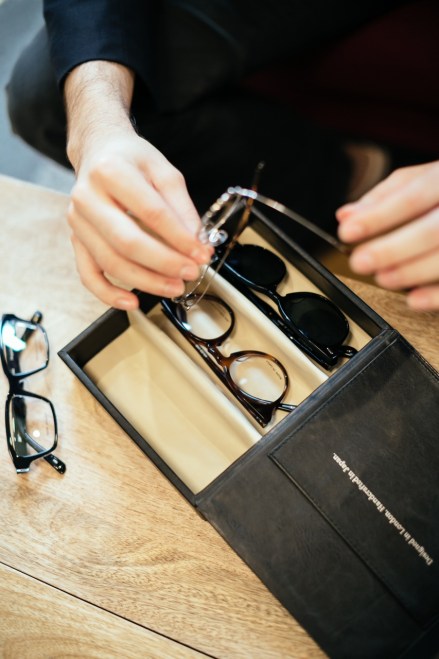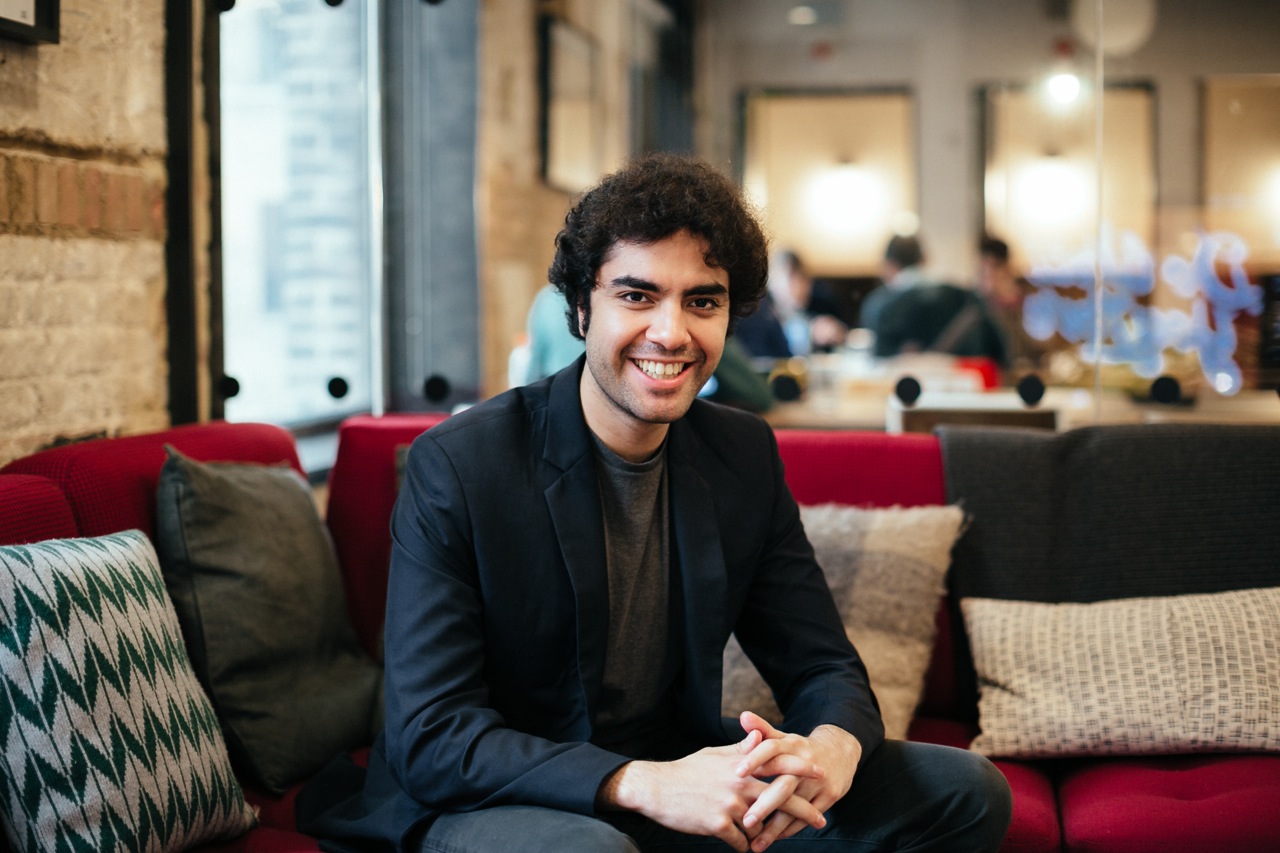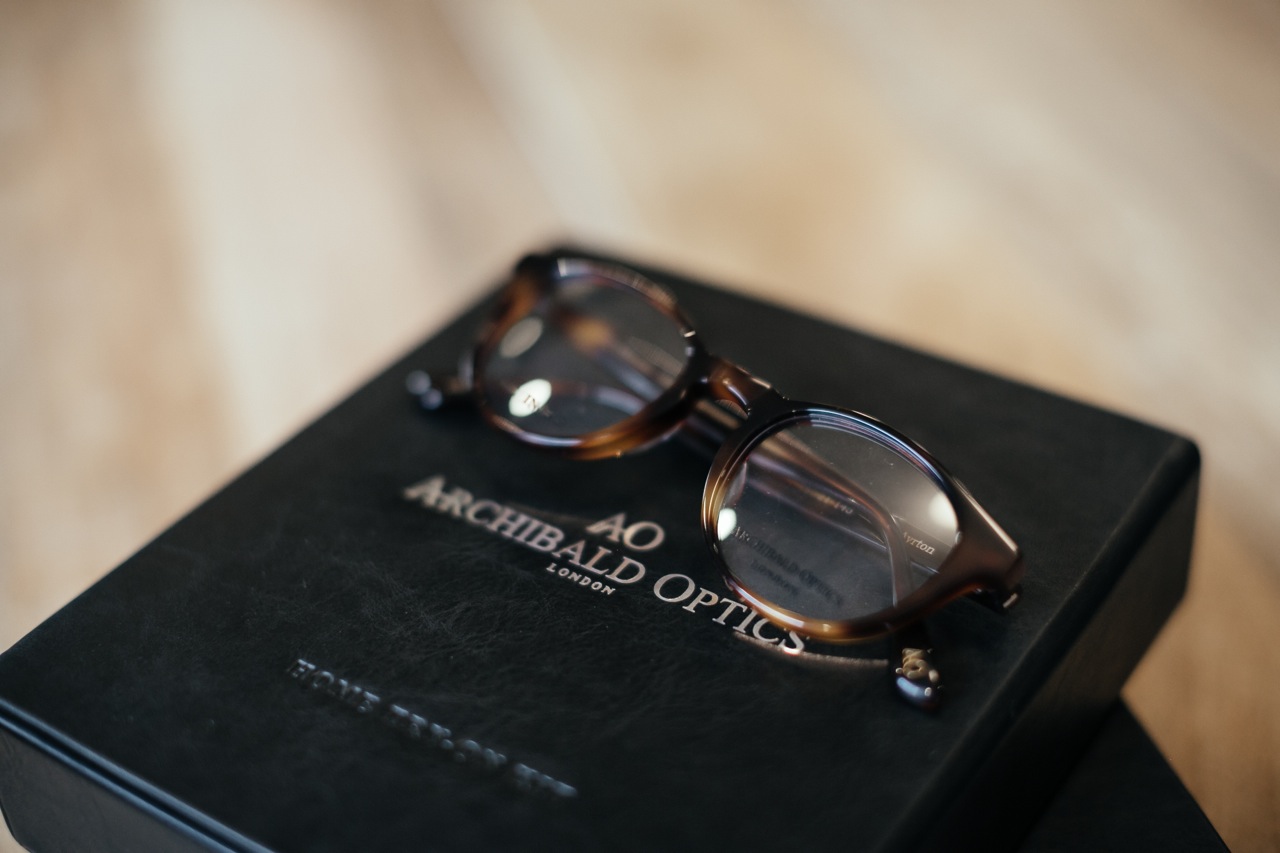What To Know About Archibald Optics
Your “Made in Italy” designer glasses may not actually be from Italy. That’s what Rohan Dhir, founder of London-based Archibald Optics, discovered while he was traveling the world to research how to launch his line of high-end eyewear.
“In Italy I saw boxes of brand-name eyewear shipped in from China,” says the WeWork Devonshire member. “The workers put in two screws and then stamped them ‘Made in Italy.’”
Dhir had dreamed of capturing the European market by selling designer eyewear for $99—the same way that Warby Parker did in the U.S.—but was crestfallen to realize that it probably wasn’t possible.
“I didn’t want to make a product of that caliber,” he admits.
Handcrafted Glasses
As Dhir drowned his sorrows at a hotel bar in Shanghai, a Scottish business executive named Larry Archibald asked him what his problem was. Dhir opened up about his failed business idea.
Archibald—who Dhir says he now considers his mentor—asked him a question that forever changed his life: “Why does it have to be $99?”
That’s when Dhir realized his product was going to be nothing like Warby Parker. Instead of targeting the lower end of the market, he’d go for high-end shoppers who usually pay hundreds for designer glasses from Oliver Peoples or Cutler and Gross. For a fraction of that price he could offer a product from Japan—handcrafted there, not just assembled from parts made elsewhere.
“Have you seen Jiro Dreams of Sushi?” Dhir asked. “Think of Jiro making glasses. There’s a team of these craftsmen we found who have became so good at their trade over a century that companies come from all over the world to get their glasses done by them.”
Today, Dhir and his team of 10 full-time staffers sell these glasses throughout the United Kingdom. They’ve recently expanded distribution to include the U.S.—taking on Warby Parker on its own turf.
Dhir says he still gets his best advice from Archibald, who urged him to have a long-term vision for growth so that he wouldn’t panic on days when things didn’t seem to be going as planned. After all, it takes time for an idea to take flight.
“We’ve had a very tough ride,” Dhir says. “And it’s been a massive learning curve. There are moments where you just think it’s not going to work, but then later on it eventually works. Fight for your startup like it’s your baby, but also learn to take a step back.”
Dhir says he’s learned not to compromise his values in order to secure that one big deal.
“In the end, go with your gut,” Dhir says. “It has seriously saved us from a lot of pitfalls and money wasted. If you have good product, success will always come.”
Photographs by Lauren Kallen








